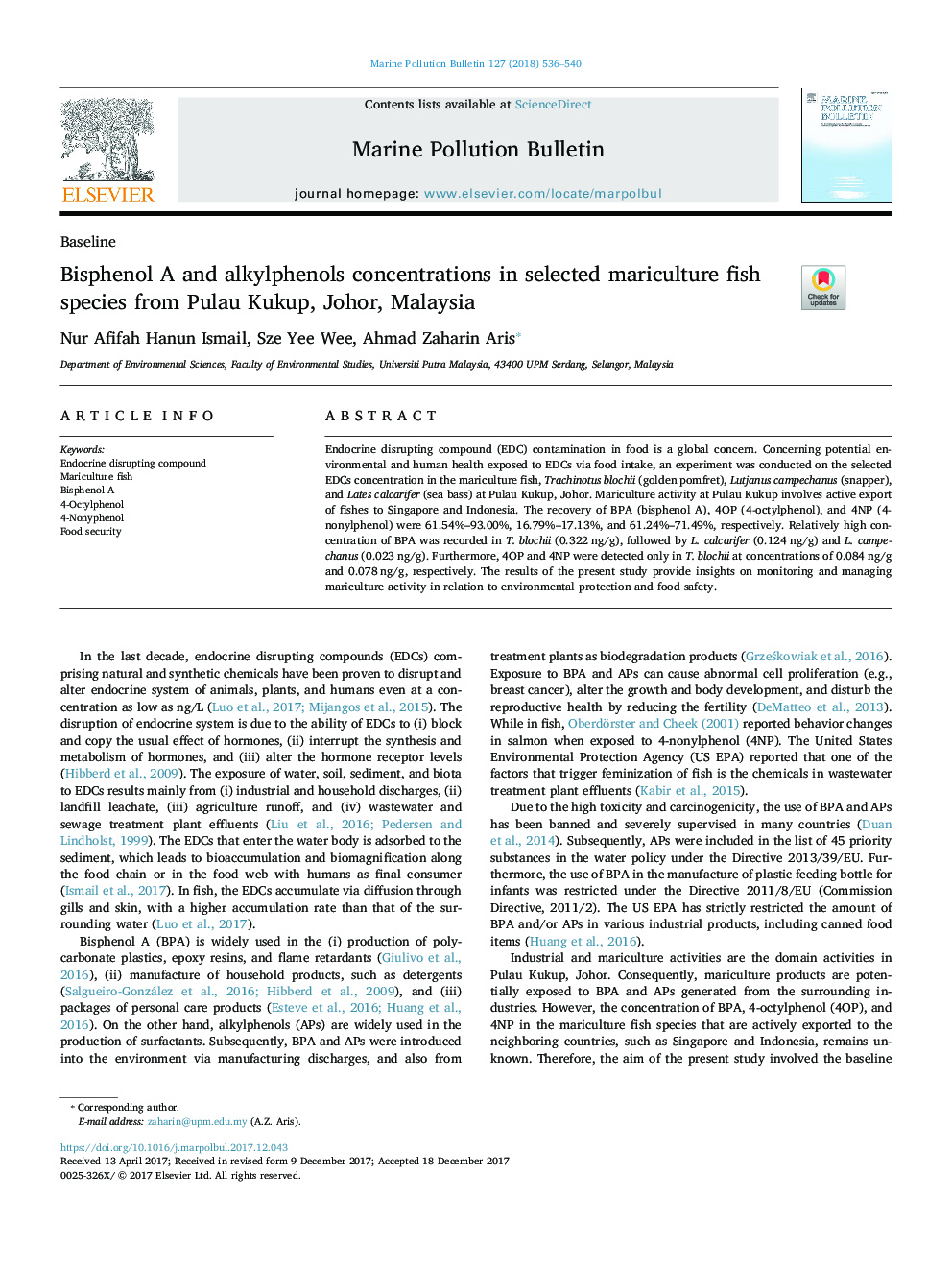| Article ID | Journal | Published Year | Pages | File Type |
|---|---|---|---|---|
| 8871820 | Marine Pollution Bulletin | 2018 | 5 Pages |
Abstract
Endocrine disrupting compound (EDC) contamination in food is a global concern. Concerning potential environmental and human health exposed to EDCs via food intake, an experiment was conducted on the selected EDCs concentration in the mariculture fish, Trachinotus blochii (golden pomfret), Lutjanus campechanus (snapper), and Lates calcarifer (sea bass) at Pulau Kukup, Johor. Mariculture activity at Pulau Kukup involves active export of fishes to Singapore and Indonesia. The recovery of BPA (bisphenol A), 4OP (4-octylphenol), and 4NP (4-nonylphenol) were 61.54%-93.00%, 16.79%-17.13%, and 61.24%-71.49%, respectively. Relatively high concentration of BPA was recorded in T. blochii (0.322Â ng/g), followed by L. calcarifer (0.124Â ng/g) and L. campechanus (0.023Â ng/g). Furthermore, 4OP and 4NP were detected only in T. blochii at concentrations of 0.084Â ng/g and 0.078Â ng/g, respectively. The results of the present study provide insights on monitoring and managing mariculture activity in relation to environmental protection and food safety.
Related Topics
Physical Sciences and Engineering
Earth and Planetary Sciences
Oceanography
Authors
Nur Afifah Hanun Ismail, Sze Yee Wee, Ahmad Zaharin Aris,
